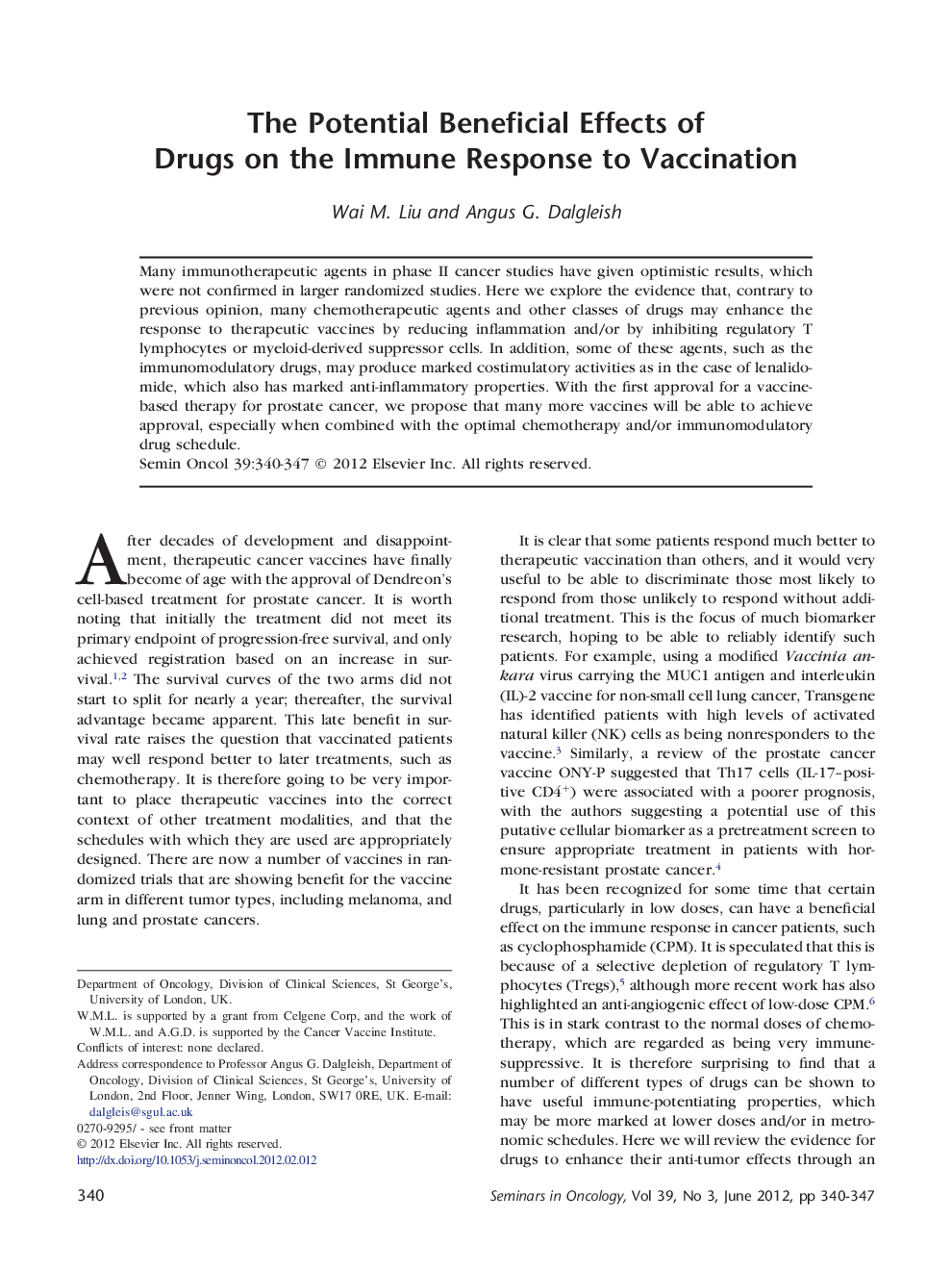| Article ID | Journal | Published Year | Pages | File Type |
|---|---|---|---|---|
| 2162220 | Seminars in Oncology | 2012 | 8 Pages |
Abstract
Many immunotherapeutic agents in phase II cancer studies have given optimistic results, which were not confirmed in larger randomized studies. Here we explore the evidence that, contrary to previous opinion, many chemotherapeutic agents and other classes of drugs may enhance the response to therapeutic vaccines by reducing inflammation and/or by inhibiting regulatory T lymphocytes or myeloid-derived suppressor cells. In addition, some of these agents, such as the immunomodulatory drugs, may produce marked costimulatory activities as in the case of lenalidomide, which also has marked anti-inflammatory properties. With the first approval for a vaccine-based therapy for prostate cancer, we propose that many more vaccines will be able to achieve approval, especially when combined with the optimal chemotherapy and/or immunomodulatory drug schedule.
Related Topics
Life Sciences
Biochemistry, Genetics and Molecular Biology
Cancer Research
Authors
Wai M. Liu, Angus G. Dalgleish,
